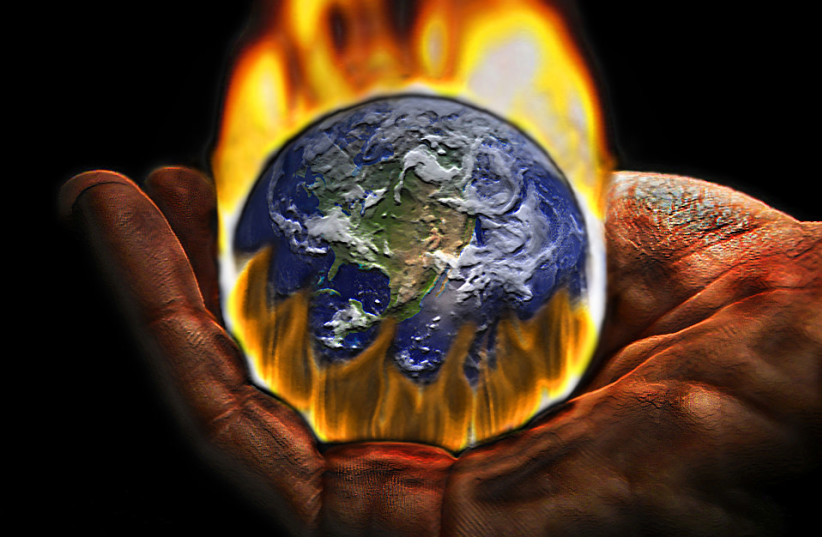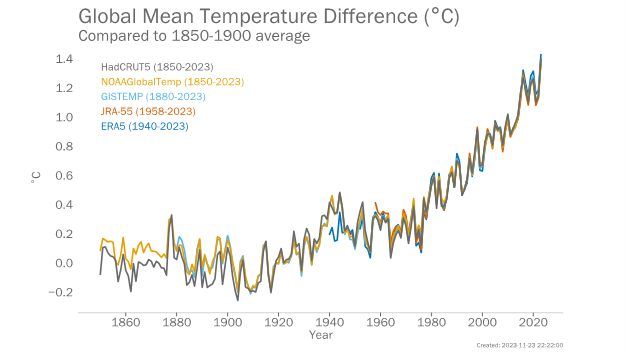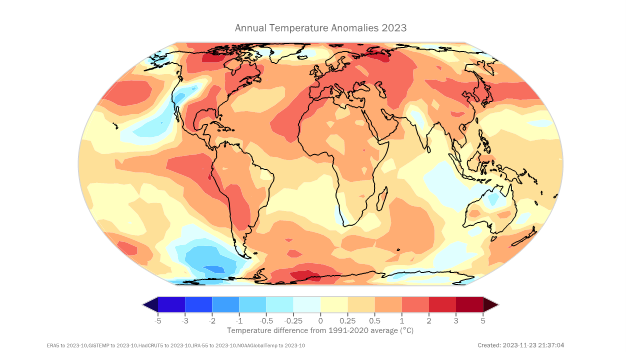
In a momentous announcement, the United Nations weather agency, the World Meteorological Organization (WMO), has declared 2023 as poised to become the hottest year on record. This revelation is grounded in extensive climate data and scientific evidence, highlighting the urgent need for global climate action.
Record-breaking Temperatures
Preliminary climate data, as reported by the WMO, demonstrates a consistent and alarming rise in temperatures throughout 2023. The global average temperature surpasses previous records, marking a clear trend toward unprecedented warmth.

WMO Findings
The World Meteorological Organization, a specialized agency of the UN, has been diligently monitoring weather patterns and collecting data globally. Their findings, based on satellite observations, ground-based measurements, and climate models, present a compelling case for 2023 being on track to claim the title of the hottest year ever recorded.
Factors Contributing to the Heat
Attributed to a range of human-induced factors, including heightened greenhouse gas emissions and widespread deforestation, the Earth’s climate equilibrium is being significantly disrupted. These factors contribute to the overall warming observed in 2023.
Extreme Weather Events
The escalating temperatures are accompanied by an increase in the frequency and intensity of extreme weather events. Heatwaves, hurricanes, and wildfires are becoming more prevalent, causing widespread damage and posing serious threats to communities globally.

Impacts on Ecosystems
The consequences of rising temperatures extend to ecosystems worldwide. Glacial retreat, sea-level rise, and disruptions to marine life are observable effects of climate change. The delicate balance of ecosystems is under considerable strain, with far-reaching implications.
- World Meteorological Organization (WMO). “WMO: 2023 Set for Hottest Year on Record, Based on Preliminary Data.”
- Intergovernmental Panel on Climate Change (IPCC). “Climate Change 2021: The Physical Science Basis.”
The Call for Urgent Action
The UN’s declaration serves as a clarion call for immediate action. Supported by the scientific community and international organizations, the need for governments, businesses, and individuals to adopt sustainable practices, reduce carbon emissions, and invest in renewable energy sources has never been more pressing.
Scientific Consensus
The scientific consensus, as articulated by the IPCC, emphasizes that human activities are the primary driver of climate change. Their reports provide a comprehensive overview of the current state of climate science and underscore the imperative for decisive action.
As the year unfolds with the ominous prospect of becoming the hottest on record, the call for global collaboration and decisive climate action reverberates. The WMO’s declaration, backed by irrefutable data and scientific consensus, underscores the urgency of addressing climate change. It is incumbent upon all nations and individuals to work collectively to mitigate the impacts of a warming planet and secure a sustainable future for generations to come.